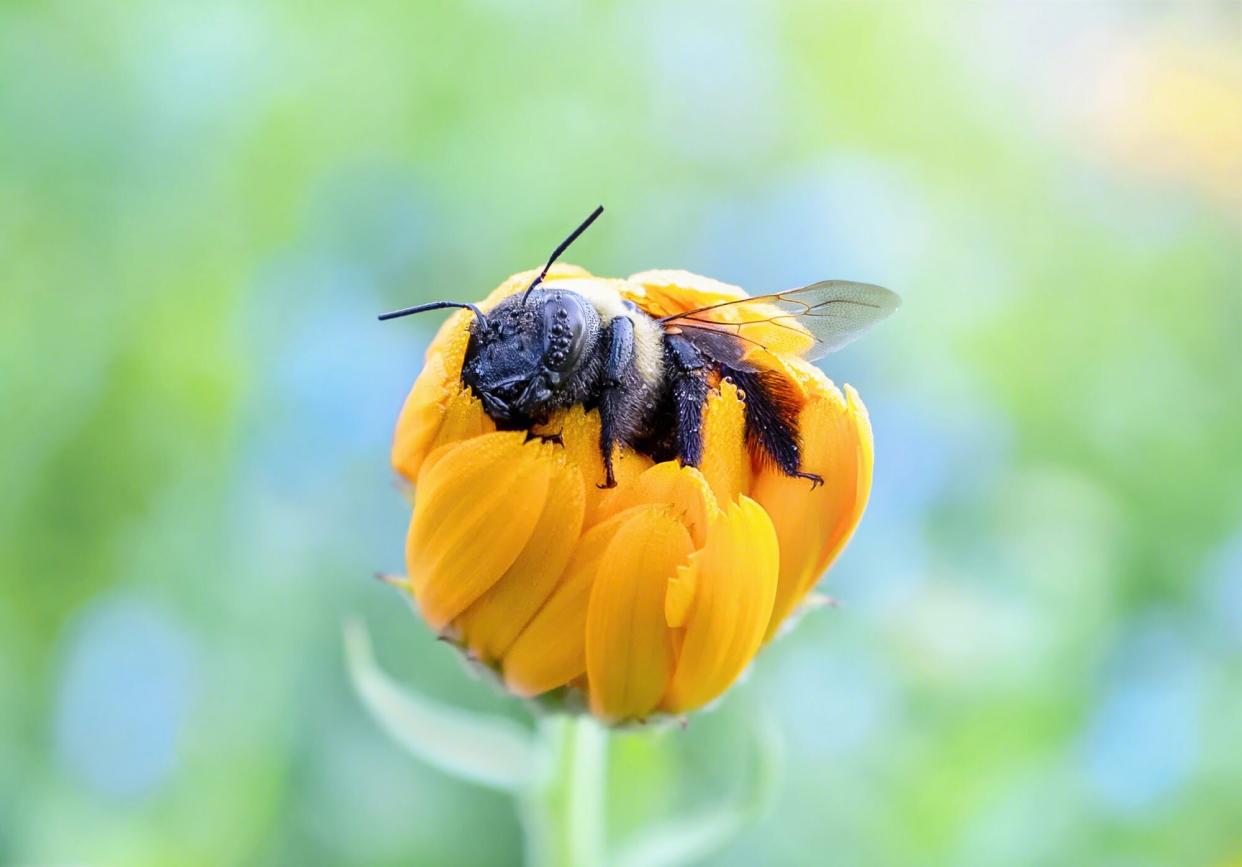Scientists Find That Bees Aren’t Getting Enough Sleep, and a Common Pesticide Is to Blame

Adrienne Elliot/500px/Getty Images
Bees are some of the most essential creatures on the planet, yet a popular pesticide is interfering with the sleep these hard-working insects need to do their important job.
In a recent study, European researchers gave bumblebees nectar sugar laced with neonicotinoids (one of the most commonly used pesticides) and then tracked their foraging movements.
They found that the pesticide greatly impacted the bees' behavior, posing big consequences for nature's essential workers and their ability to pollinate, reports CNN.
Like humans, bees require a good amount of sleep to function properly.
"It seems to disrupt the body clock in foraging bumblebees—they forage much less, more of that foraging is happening at nighttime, and they are sleeping a lot more in the daytime. It's causing a mistiming of their normal behaviors," Kiah Tasman, teaching associate at the University of Bristol's School of Physiology, Pharmacology and Neuroscience, told CNN.
"If the time where they are managing to go out and forage is at nighttime when flowers aren't available, that's going to hugely reduce how successful they are at collecting the food that the colony needs to grow and reproduce," she said, adding that neonicotinoids could also affect how well bees are able to care for their young.
WATCH: "Ultra-Rare" Blue Bees Rediscovered in Florida
“Ultra-Rare” Blue Bees Rediscovered in Florida
The elusive, solitary bee hadn’t been spotted since 2016.
The results of the study are particularly worrisome to humans because foraging doubles as pollination, and many plants, including the ones that sustain ourselves and our livestock, rely on pollinators to reproduce. Sadly, bees are already critically threatened as it is.
Almost 90% of wild plants and 75% of global crops depend on animal pollination. According to the United States Department of Agriculture, pollinators, most often bees, are responsible for one in every three bites of food we take.
Hopefully this study makes an impact on the use of neonicotinoids in pesticides. If bees don't get the sleep they need, we all suffer.

